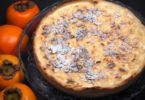The diet modulates immune function through the intake of micro and macronutrients. These improve the response to pathogens.

Diet plays an important role in modulating immune function. Several nutrients are related to the differentiation of the cells of the white series, which are responsible for rejecting pathogenic organisms. Likewise, antioxidants play a key role in helping to avoid complex pathologies.
For this reason, it is always recommended to carry out a healthy and varied diet. It is important to combine a correct diet with other appropriate habits, such as regular physical exercise and good rest. Only by managing these 3 pillars will a really efficient immune function be achieved.
How and why does diet influence immune function?
As we discussed, immune function is highly dependent on cells of the white series. These are responsible for detecting foreign elements within the body, subsequently eliminating them. Certain nutrients such as zinc are key to achieving the development of these cells, as stated in a study published in Nutrients.

Healthy food is an excellent source of macro and micronutrients.
There are many other nutrients that play a decisive role in the prevention and cure of pathological processes.
Vitamin C is a good example, since its intake at adequate doses is capable of reducing the incidence of respiratory diseases and improving their management. This is evidenced by research published in Frontiers in Immunology.
On the other hand, vitamin D not only stimulates the immune function against external agents, but also plays an essential role in the prevention of complex pathologies. Maintaining low levels of it has been shown to increase the incidence and risk of developing cardiovascular problems.
What are the adverse effects of eating unhealthy diets?
Proposing unhealthy diets and sustaining them over time has a noticeable impact on body composition. Muscle mass can be reduced, increasing the fat portion of the body.
An improper diet may not meet the nutrient requirements discussed above, which has a direct effect on immune function. This becomes less and less efficient, so that pathogens will be able to cross the body’s barriers and multiply within the human body, causing symptoms.
It is important to ensure that quality macronutrients are consumed in optimal proportions, such as healthy fats.
These are key to maintaining a situation of homeostasis in the internal environment, especially as regards the balance of inflammatory processes. It must be remembered that inflammation is a process underlying many serious pathologies.
Finally, mention should be made of the impact of an unhealthy diet on the microbiota, since this is also related to immune function.
If there is a loss of bacterial diversity or density in this organ, pathogens will be more likely to cross the barriers of the internal environment, thus causing problems.
Diets that boost immune function

The Mediterranean diet, for example, is characterized by the consumption of fish on a regular basis.
Diets that satisfy the nutrient requirements discussed are positive for immune function. It is essential that they contain vitamin C, vitamin D, zinc and healthy fats in optimal doses and on a daily basis. Thus the incidence of infectious and chronic pathologies will be reduced.
However, at the same time it is important to take care of the microbiota, so the inclusion of fermented foods and fiber becomes relevant. For this reason, it is always positive to consume yogurt or kefir on a regular basis, in addition to ensuring the presence of vegetables in large quantities.
Both the Mediterranean diet, the Atlantic and even the ketogenic diet meet these characteristics. They are nutritionally dense, generate an internal homeostasis environment and, if properly raised, help maintain an optimal body composition state.
In any case, they must be complemented with the practice of physical activity on a regular basis and with a good rest to be able to exploit their benefits to the maximum. On these two points a great majority of people fail.
To improve immune function, eat right
Food plays a key role in maintaining immune function. If the supply of nutrients is not efficient, problems can occur in the differentiation of the cells of the white series, which makes the body more susceptible to infections.
Imbalances from the energy or nutritional point of view manage to provoke inflammatory states that increase the incidence of complex diseases, such as cardiovascular diseases. For this reason, it is important to avoid the consumption of ultra-processed, trans fats and simple sugars.
Do not forget that the microbiota also plays a decisive role in immune function, so it must be taken care of. For this, it is convenient to ensure the consumption of fermented foods and fiber, although a probiotic supplement in a timely manner can be of great help to support their functions.





